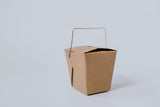
Salve! Bonjour! Hola! Konnichiwa! Travelling abroad is a thrilling adventure. Spending time in a new place, experiencing a different culture, and wandering through landscapes you’ve only seen in photographs before is a bucket list item worth checking off. Yet, like most things, travelling with food allergies creates some challenges. These aren’t insurmountable challenges, of course. They are, however, something to consider and plan for before you board your plane.
Allergy Vocabulary
It’s always helpful to learn some basic vocabulary in the native tongue of the place you’re visiting. Don’t depend on finding hospitality staff and tour guides that can hold a basic conversation in your first language. You should learn at least some day-to-day phrases and words to help you communicate with the different people you’ll encounter on your trip.
If you or someone you’re travelling with, however, has food allergies, you also need to be able to convey that information to restaurant staff and, if necessary, medical staff. You should also be able to read ingredient lists and labels on packaging just as you would at home.
Before you leave for your trip, download and print FARE’s chef cards in the language of each country you’ll be visiting. Even if you aren’t sure that you’re probably pronouncing (or remembering) the sentence, “Je souffre d’allergies alimentaires graves,” handing your French waiter the chef card with it written will effectively informs staff that you’re trying to say “I have severe food allergies.” When you’re reading labels on a package, you may not recall the Italian word for peanut, but a quick reference to the chef’s card in your wallet will remind you that it’s “arachidi.”
Keep Your Medication At Hand
Keep your medication in a carry-on or personal bag. Bring your prescription medication in its original labeled packaging. Bring a printed copy of your food allergy management plan signed by your allergist. Make sure those medications are included on the document.
You want to be sure you have ready access to both your medication and your allergy plan in the airport, on the plane, and as soon as you land. You want to be sure your medication and your allergy plan are with you even if your bags lag behind in a layover city longer than you do. If possible, bring extra medication or prescriptions with you.
Learn About Local Healthcare
Part of your trip planning should include learning how to handle allergy-related emergencies in the country you’re visiting. If you’re a US citizen, you can start by searching “Medical Assistance” on the US Embassy & Consultant website for the country you’re visiting. Your results should give you the information you need about the healthcare system in the country you’re visiting and how to locate the care you need.
Armed with a basic understanding of healthcare along your travels, you’ll also want to search for hospitals and providers in the regions you’ll be traveling in so you know ahead of time where to go should an emergency arise.
Bring Snacks (and more!)
First, let’s be clear, you’re going to want to get familiar with what food you can and can’t travel with. While many prepackaged foods can be placed in your checked bags, there may be some restrictions on what can go in your carry-on. Armed with that information, consider packing a stash of safe food options for your trip to be sure you’ve got some options in case finding safe food proves challenging during your trip.
Always Read Labels!
Reading labels should be a reflex at this point. Pick up a package of food, check the label. Every. Single. Time. Don’t drop the habit just because you’re on vacation. And don’t assume that just because a particular brand has been safe 100% of the time at home, that it’s going to be safe in a different region or country. There may be different recipes or manufacturing processes at the plants supplying the items in the location you’re visiting. Always read the labels. Always. Every time.



